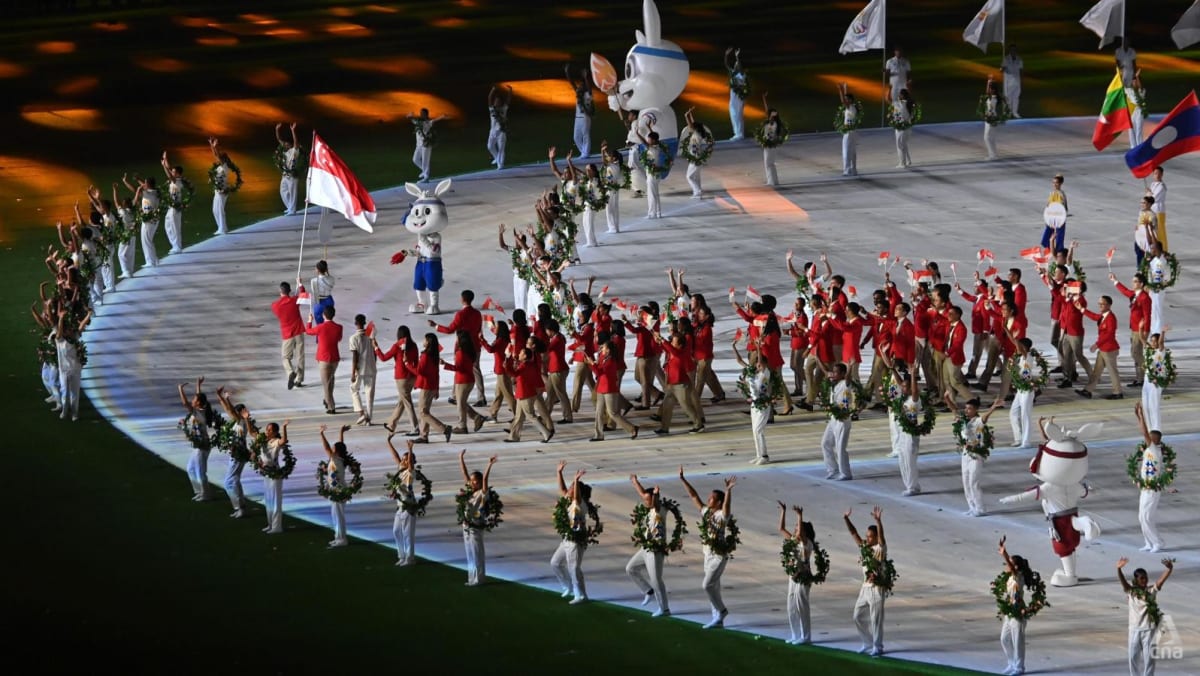IN FOCUS: Fixing Singapore football – are there lessons from the successes of other sports?
With a dearth of clubs at the highest level, some promising footballers such as Aide ditch their dreams of playing professionally after NS.
“I’ve seen a lot of talented footballers who also didn’t want to continue because they are not being picked (by clubs) after NS or after they’re injured. They want to try (to continue) but then there are not so many clubs that are available,” he explained.
“With more clubs … (even) if you don’t know whether you can make you or not, and if another club offers you, you can try for one season. You never know – if you do well then they may increase your pay for next season or a better club might approach you,” he explained.
PARENTAL INVOLVEMENT
SSA is not resting on its laurels. Recognising that it too has a limited pipeline, a new Emerging Talents Programme (ETP) kicked in earlier this year.
Held between one to three times a week depending on an individual’s age, selected swimmers are grouped together for ETP sessions, said Gary Tan.
“This whole ETP program is a three-fold approach to address our issues (so) that we can work on (the) whole landscape, how we influence the landscape, and (provide) the touch points that we have to bring back into their daily training environment,” he added.
It also helps instil a sense of national pride within the young swimmers, who know that they are part of a system bigger than themselves.
But while having programmes in place is important, parental support is vital for swimmers.
“It’s a tripartite partnership – the swimmer, the coach as well as the parent … Without them (the parents), you cannot have a swimmer in your club. You will never be able to have any buy in from them,” said Tan.
“We actually have very open discussions with our parents, not just in the National Training Center, but even on a national level when they can email us on various levels of things.”
“The swimmers who do well usually have a lot of support from their families. They have plenty of support from their families in terms of logistics, sending them back and forth from training,” explained Cheah. Other forms of parental support include paying for swim sessions and gear, he added.
“If you want to learn how to swim, I don’t think it’s expensive just to learn. But in any sport that you play, to be able to be the best of the best or to be able to (be) the top one or two per cent … you have to spend a (lot) of money.”
The same applies to football, where such support as well as family circumstances can shape the outcome of a youngster’s sporting path.
Aide, who hails from a middle-income family, recalled how his mother encouraged him to pursue his footballing dreams. But he also remembered how some friends dropped out of the sport to support their families.
“They were good players but then they stopped and didn’t come for training because they were going for work to support their family. And so if you keep missing training then of course you’re going to get kicked out,” he said. “It happens a lot.”
Aide had initially hoped to continue chasing his dream of playing professionally after NS. But the lack of options at the club level, a paltry salary offered by an interested club (below S$1000 a month), and the death of his father were contributing reasons to why he moved on from professional football.
“I’ve been playing football for my whole life, and that’s what I wanted to do as a full time job. But once I got into that space, it was a bit hard salary-wise, and I saw that (footballing) opportunities in Singapore were not that good,” he added.
“I said: ‘Never mind, it’s okay, maybe it’s not meant to be. I just found a full-time job and played in the SFL,” he recalled.
For all the latest Sports News Click Here

